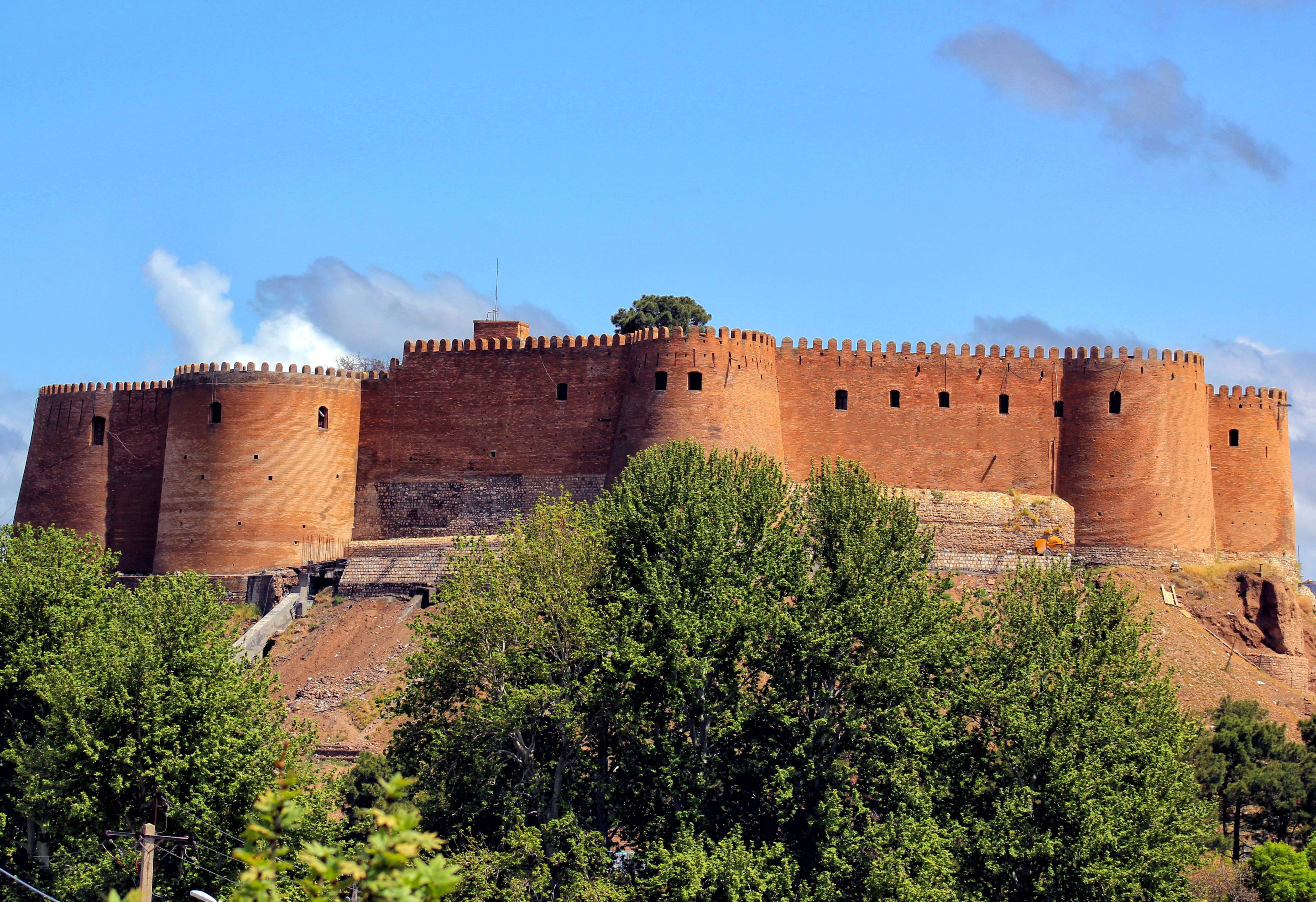Falak-ol-Aflak Castle on:
[Wikipedia]
[Google]
[Amazon]
Falak ol-Aflak () or Shapur Khast Castle () is a


Lorestan Province Cultural Heritage Organization
{{DEFAULTSORT:Shapur Khast Sasanian castles Castles in Iran Prisons in Iran Military history of Iran Tourist attractions in Lorestan province 3rd-century fortifications Buildings and structures in Khorramabad Tourist attractions in Khorramabad Buildings and structures on the Iran National Heritage List
castle
A castle is a type of fortification, fortified structure built during the Middle Ages predominantly by the nobility or royalty and by Military order (monastic society), military orders. Scholars usually consider a ''castle'' to be the private ...
situated on the top of a large hill with the same name within the city of Khorramabad, the regional capital of Lorestan province, Iran
Iran, officially the Islamic Republic of Iran (IRI) and also known as Persia, is a country in West Asia. It borders Iraq to the west, Turkey, Azerbaijan, and Armenia to the northwest, the Caspian Sea to the north, Turkmenistan to the nort ...
. This gigantic structure was built during the Sasanian era (224–651).
The Khorramabad River runs past the eastern and south-western side of the Falak-ol-Aflak hill providing the fortress some natural protection on those sides. Today, the western and northern sides of the hill are bordered by the residential districts of Khorramabad.
History
During the Pahlavi era, after being used as a prison until 1968, it was transformed into a museum complex.Architectural layout
The foundations of the actualcastle
A castle is a type of fortification, fortified structure built during the Middle Ages predominantly by the nobility or royalty and by Military order (monastic society), military orders. Scholars usually consider a ''castle'' to be the private ...
measure approximately . The height of the entire structure, including the hill, reaches to 40 meters above the surrounding area.

Surrounding structures
Archaeological studies have identified the existence of a two layered rampart with twelve towers around the present day construction. From the twelve original towers, only two remain and these are situated northwest and southwest of the existing fortress.
Dehumidifier
Falak ol-Aflak castle is made with different materials like stone and wood that are vulnerable tohumidity
Humidity is the concentration of water vapor present in the air. Water vapor, the gaseous state of water, is generally invisible to the human eye. Humidity indicates the likelihood for precipitation (meteorology), precipitation, dew, or fog t ...
. That is why the castle was built on the highest point of the city of Khorramabad, so that the wind could penetrate the building and dry its foundations.
Current status
The castle is managed by the Iran Cultural Heritage Organisation and is a protected site.See also
* Sassanid architecture *Iranian architecture
Iranian architecture or Persian architecture (, ''Me'māri e Irāni'') is the architecture of Iran and parts of the rest of West Asia, the Caucasus and Central Asia. Its history dates back to at least 5,000 BC with characteristic examples distr ...
References
External links
Lorestan Province Cultural Heritage Organization
{{DEFAULTSORT:Shapur Khast Sasanian castles Castles in Iran Prisons in Iran Military history of Iran Tourist attractions in Lorestan province 3rd-century fortifications Buildings and structures in Khorramabad Tourist attractions in Khorramabad Buildings and structures on the Iran National Heritage List